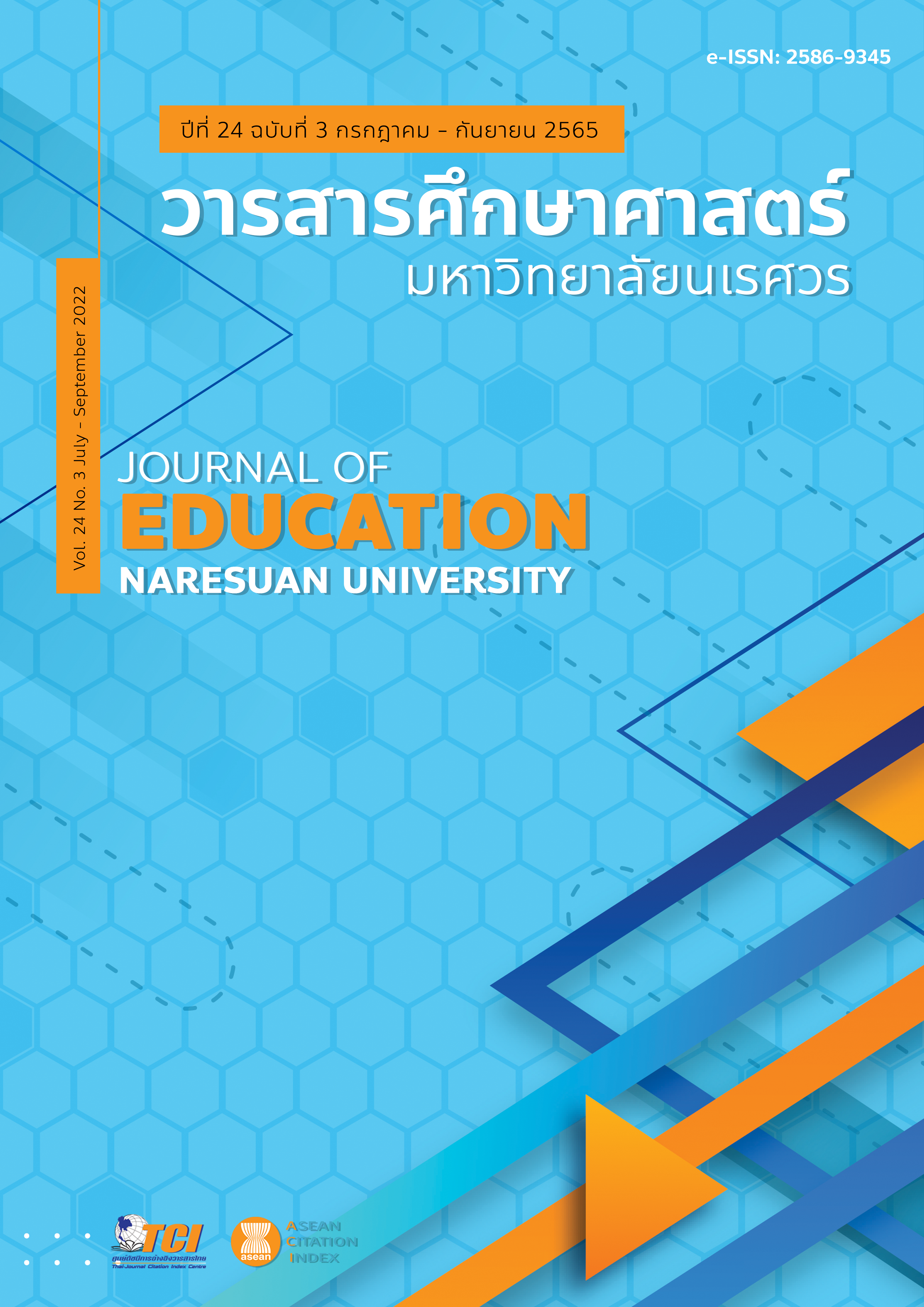A DEVELOPMENT OF LEARNING ACTIVITY THROUGH ENGLISH LITERATURE TO ENHANCE CRITICAL READING ABILITY AND CULTURAL LITERACY IN LANGUAGE FOR MATTHAYOMSUKSA 5 STUDENTS การพัฒนากิจกรรมการเรียนรู้ผ่านวรรณกรรมภาษาอังกฤษ เพื่อส่งเสริมการอ่านภาษาอังกฤษอย่างมีวิจารณญาณและความเข้าใจในวัฒนธรรมทางภาษา สำหรับนักเรียนชั้นมัธยมศึกษาปีที่ 5
Main Article Content
Abstract
The purposes of this research were 1) to construct and assess the efficiency of the learning activity through English literature as the criteria of 75/75, 2) to implement and study the result of learning activity through English literature, and 3) to study students’ opinion toward learning activity through English literature. The study by research and development of 3 steps as follows: 1) Constructing and assessing the effectiveness of the learning activity through English literature. That certified the learning activity by five experts to examine the appropriation then implemented in Matthayomsuksa 5 students to define the efficiency of 75/75, 2) Implementing and studying learning activity through English literature. The sample group was 19 students of Matthayomsuksa 5 at Muangleeprachasamakkee School to simple random sampling, and 3) studying students’ opinion toward learning activity through English literature with the sample group. The result of the study revealed that: 1) Six steps of learning activity through English literature were (1) literal understanding, (2) empathy, (3) analogy, (4) reflection, (5) evaluation, and (6) recognition and effectiveness at 76.05/75.93, 2) The implement and study the result of learning activity through English literature were Critical reading ability and Cultural literacy in the posttest were higher than of the pretest with statistical level of .05, and 3) Students had positive attitude and opinion with learning activity and using English literature in class.
Article Details

This work is licensed under a Creative Commons Attribution-NonCommercial-NoDerivatives 4.0 International License.
The owner of the article does not copy or violate any of its copyright. If any copyright infringement occurs or prosecution, in any case, the Editorial Board is not involved in all the rights to the owner of the article to be performed.
References
EF Education First. (2018). Global ranking of countries and regions. Retrieved January 10, 2019, from https://www.ef.co.th/epi/
Hutavadhana, V. (2008). Effects of literature-based English instruction on English reading and writing ability of upper secondary school students (Master thesis). Bangkok: Chulalongkorn University. [in Thai]
Khatib, M., Rezaei, S., & Derakhshan, A. (2011). Literature in EFL/ESL Classroom. English Language Teaching, 4(1), 201. http://dx.doi.org/10.5539/elt.v4n1p201
Khatip, M. (2011). Why & why not literature: A task-based approach to teaching literature. International Journal of English Linguistics, 1(1), 213-218.
Langer, A. J. (1998). Thinking and doing literature: An 8-year study. English Journal, 87(2), 16-22.
Miller, L. L. (1977). Developing reading efficiency (3rd ed.). New York: Henny Holt.
National Institute of Educational Testing Service. (2019). The result of Ordinary National Educational Test (O-NET) Grade 12 Students academic year 2018. Retrieved February 22, 2019, from http://www.newonetresult.niets.or.th/AnnouncementWeb/PDF/SummaryONETM6_2562.pdf [in Thai]
Pacific Policy Research Center. (2010). 21st century skills for students and teachers. Honolulu: Kamehameha Schools.
Partnership for 21st Century Skills. (2009). Professional development for the 21st century. Retrieved from http://www.p21.org/documents/P21_Framework.pdf
Shukri, N. A., & Mukundan, J. (2015). A review on developing critical thinking skills through literary texts. Advances in Language and Literary Studies, 6(2), 4-9.
Tangpinijkarn, M. (2015). Effects of a critical reading instruction using literature on critical reading ability of upper secondary school students (Master thesis). Bangkok: Chulalongkorn University. [in Thai]
Thompson, J. (1987). Understanding teenagers’ reading: Reading process and the teaching of literature. Melbourne: Methuen & Co.
Ueai-chimplee, A. (2007). Effects of English reading instruction based on the reader response approach on critical reading ability and critical thinking ability of upper secondary school students (Master thesis). Bangkok: Chulalongkorn University. [in Thai]
Van, T. T. M. (2009). The relevance of literacy analysis to teaching literature in the EFL Classroom. English Teaching Forum, 47(3), 2-9.


